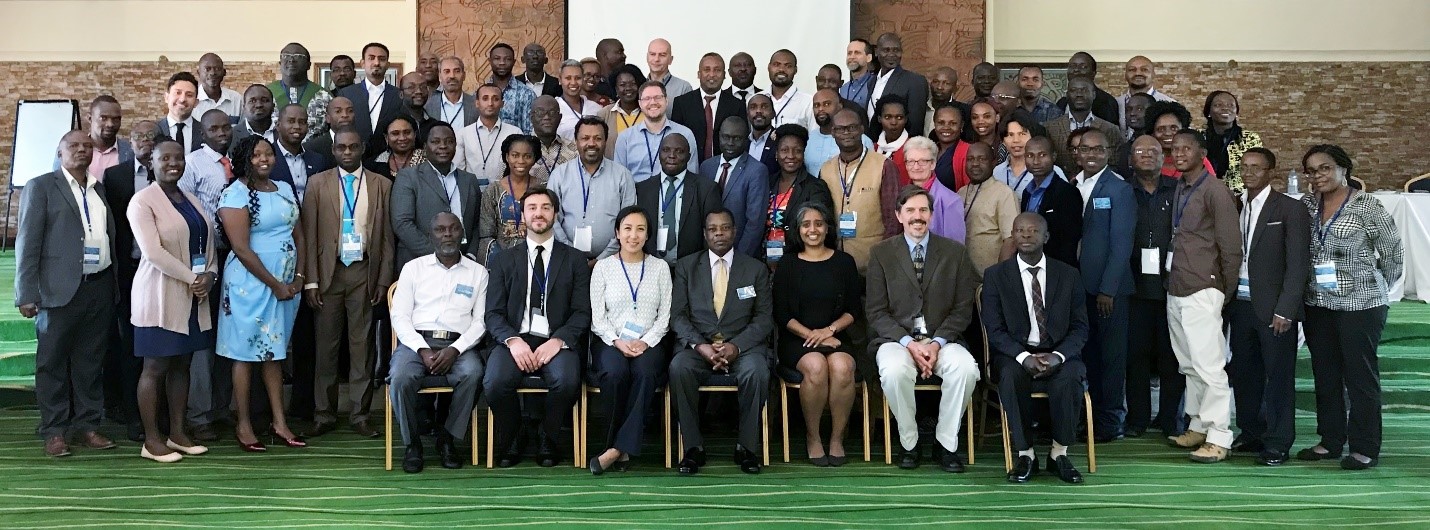What Do Standards Mean To You?
“Quality,” “innovation,” and “mutual understanding” were but some of the words I heard workshop participants use last week to describe what standards mean to them. Over 70 stakeholders from 11 African countries convened in Kampala, Uganda to discuss the role of standards in driving access to clean cooking.
The workshop, hosted by the Clean Cooking Alliance, the World Health Organization (WHO), and the International Organization for Standardization (ISO), brought together policymakers from ministries of health, environment, and energy, and national standards bodies, as well as producers of clean cooking solutions and technical experts, to discuss standards and testing for cookstoves. Over the week, workshop participants explored setting targets and tiers of performance; developing national standards and testing mechanisms in line with the WHO Guidelines for indoor air quality; and implementing national standards in their countries.
Developing and implementing performance standards is critical for driving innovation and building an industry that accelerates access to clean cooking around the world. To develop a standard that is both steeped in science and practical to implement, requires the input and perspective of stakeholders from across the sector, from technical experts to policymakers.
I followed along at the workshop to understand what standards mean to each of the participants. In asking each participant about the importance of standards from their perspective, no matter their background or area expertise, I heard the same words over and over again—”quality,” “common language,” “drives innovation,” “creates reliability,” “guiding principles,” “promotes consumer confidence,” “fosters equality.”
After hearing these words, I sat down with six of the participants to dig deeper into the various perspectives represented at the workshop and to see what the importance of standards is for their organization, government, or business. For some, it turns out, standards are personal. Interviews have been lightly edited for clarity.
Dr. Cosmas Anyanwu, testing and training expert
National Stove Eligibility Laboratory/National Center for Energy Research and Development, University of Nigeria, Nsukka, Nigeria
For me, stove standards and the development of standards for testing of stoves is synonymous with all the efforts geared at improving communication of results in a common language, reporting of the metrics using a common platform, and improving the performance of the stoves while maintaining a certain minimum standard. And also ensuring that stove developers apply similar rules to achieve greater standards without necessarily pricing the poor out of the market.
Virginia Ssemakula, clean cooking fuel producer
Good Fire Limited/Biomass Energy Technologies Association, Uganda
The importance of standards for us, as a company and as an association, is that we shall be able to make quality products. We talked about being identified and endorsed as producers of quality products so that we can compete favorably…we could be able to export our products, we could be able to compete for bids…we could be able to access financial services, if we are able to say we have a good quality product. [For consumers] they will be able to identify which is the quality product. There are lots of products, so they will be able to identify that this…if it has this kind of label then it is probably a good quality product…so that consumers are able to make a choice out of the various products that are on the market. Standards would enable us to embed best practices within our organization.”
John Mitchell, policy and clean cooking expert
US Environmental Protection Agency, United States of America
Performance standards are foundational. We cannot create the environment for policy to go forward without knowing how cookstoves perform in the lab. We cannot make policy [without standards].
Mary Suzan Abbo, testing expert
Centre for Research on Energy and Energy Conservation, Uganda
Standards are the basis that we have for mutual understanding. It is a tool that we use to facilitate communication and measurement. When standards are promoted at the national level, for instance in Uganda at the National Bureau of Standards, then the local business and the development partners are incentivized to demand for testing services.”
Francesco Dadaglio, standards expert
International Standardization Organization, Switzerland
Standards mean a lot to me actually. Ever since I started to learn about what standardization means, I’ve realized that standards are the solutions provider. For the developing country dimension, I think that the solution is even a bigger deal. It is even more important to make sure that standards are not only adopted but are used appropriately and, in many and all the different sectors that they cover, that they provide adequate solutions to the various problems that are faced.
Naomi Wagura, standards and labeling implementation expert
CLASP, Kenya
[Standards and labeling] promote innovation by evaluating everybody on the same basis and so people are now competing to better each other because they have a standard baseline to check against…for consumer protection, ensuring that the people, especially rural consumers, that are cash-poor are getting the best value for money. And also, for labeling to endorse the products that are doing well, so that also helps with innovation.
For the Clean Cooking Alliance, our goal is to support the development of an inclusive clean cooking industry so that at the end of the day, anyone will be to walk into a market anywhere in the world and have a choice of high-performing, quality products. And as we heard last week, we won’t get there without standards.
So, what do standards mean to you?
Learn how to get involved in developing international cookstove standards here.
See answers to frequently asked questions about standards here.

